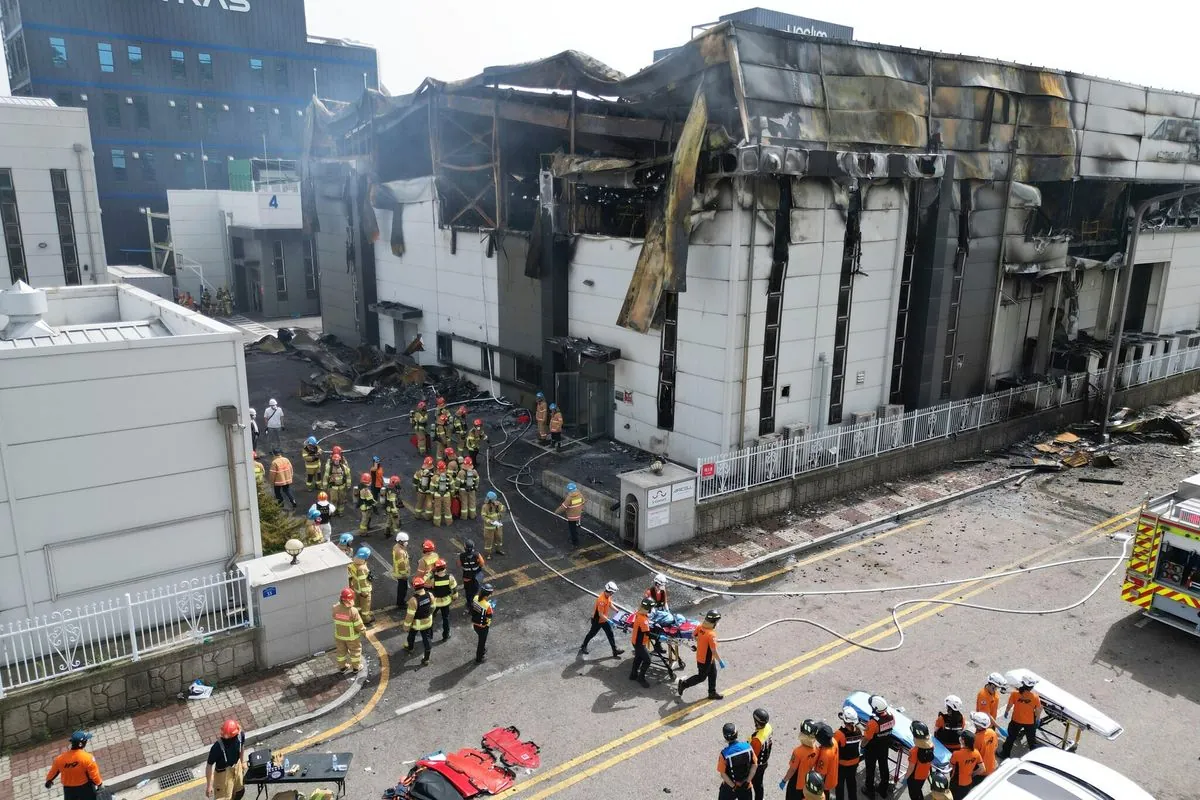In a tragic incident that occurred approximately 14 months ago, a fire at Aricell, a South Korean lithium battery manufacturer, claimed the lives of 23 workers and injured nine others. Police investigations have now revealed that the company's rush to meet production deadlines, while disregarding safety concerns, was the primary cause of this devastating event.
Kim Jong-min, a police official, disclosed that Aricell had failed a quality inspection for military-grade batteries in April 2023. In an attempt to make up for lost time, the company accelerated production without addressing critical safety issues. This decision led to a series of events culminating in one of South Korea's most severe industrial accidents in recent years.
"The accident occurred as the company pushed ahead without taking measures despite problems in various steps in the production process."
The investigation uncovered that Aricell hired temporary and unskilled workers to increase output, resulting in a surge in product defects, including overheating batteries. Despite these red flags, the company failed to implement necessary safety precautions.
The high casualty count was attributed to inadequate emergency escape training. Tragically, the victims missed a crucial 37-second window to evacuate the facility. Security footage revealed that the fire originated from a stack of batteries and rapidly engulfed the factory, where 35,000 lithium batteries were stored.
South Korea, one of the world's largest producers of lithium-ion batteries, has faced increasing scrutiny over industrial safety. The global lithium-ion battery market, valued at $41.1 billion in 2021, has seen exponential growth, with demand expected to increase 40 times between 2020 and 2040.
Aricell, established in 2020, primarily manufactures lithium primary batteries for sensors and radio communication devices, including some used by the South Korean military. This incident highlights the critical importance of maintaining stringent safety standards in the rapidly expanding battery industry.
The fire at Aricell serves as a stark reminder of the potential dangers associated with lithium battery production. Lithium battery fires can reach temperatures exceeding 1,000°C, posing significant risks to workers and surrounding areas. The incident underscores the need for rigorous safety protocols, proper training, and continuous monitoring in battery manufacturing facilities.
In the aftermath of the tragedy, Park Soon-kwan, Aricell's CEO, expressed condolences and apologized to those affected. However, the company's initial claims of compliance with safety requirements have been called into question by the police findings.
As the battery industry continues to grow, with applications ranging from smartphones to electric vehicles, this incident serves as a sobering reminder of the importance of prioritizing safety over production targets. The development of new technologies, such as solid-state electrolytes, may offer improved safety features in the future, but until then, strict adherence to existing safety regulations remains paramount.
